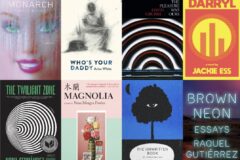Release Date: September 21, 2015
Label: Atlantic
Jess Glynne has one of those classic, soulful voices that can be accurately described as “powerhouse,” the kind that attracted producer Route 94 to help her write and sing for his hit house single “My Love,” and made Clean Bandit’s “Rather Be” an international hit last year. You’ve probably heard Glynne’s voice before you even knew who the English singer was, though you might not know who she is even after hearing her debut record, I Cry When I Laugh.
Released last week in the U.S. via Atlantic (and available in the U.K. since August), I Cry When I Laugh plays like a gospel record devoid of Jesus, Glynne’s spirituality here being an optimistic exploration into self-love and mending a broken heart. Most of the record feels chained to the piano, the bulk of the album’s songs built around the instrument, often centered around cheerful little riffs, and it’s all tambourine-shaking, hand-clapping, and backing choirs “ooh”-ing and “amen”-ing Glynne’s journey. “Gone through hell looking for heaven,” the 25-year-old sings on “No Rights No Wrongs,” “Got an answer, looking for a question.” The record can be relentless in this “lift yourself up” message, the cream of this crop being the disco-tinged “Don’t Be So Hard On Yourself,” punctuated by swooning violins and a house-evoking piano melody fit for the club. But the song doesn’t pack as much punch alongside similar sounding, self-help tracks like “Ain’t Got Far to Go” and “Gave Me Something,” all of which begin to blend together.
But I Cry When I Laugh doesn’t have much of a punch overall. Glynne’s writing is neck-deep in clichés; she’s your shadow when you’re alone, her bones are broken but she won’t fall. “Will you take the wheel if I lose control?” Glynne sings on “Take Me Home.” “If I’m lying here, will you take me home?” The album’s most confusing track is the slow, keyboard-driven ballad “Saddest Vanilla” which features singer Emeli Sandé and finds the two playing women whose hearts get broken in an ice cream parlor.
The album is ultimately plagued by scatterbrained production; by the time you reach Clean Bandit’s “Rather Be” and the sultry, synth-driven “Why Me,” they feel incongruent, and did anybody need a throwaway acoustic reprise of “My Love”? If this is the moment we finally get to learn who Glynne is on her own, it’s ultimately a letdown. There’s no question that Jess Glynne is a very good singer, but her debut proves her best work thus far is on songs that aren’t even hers.





